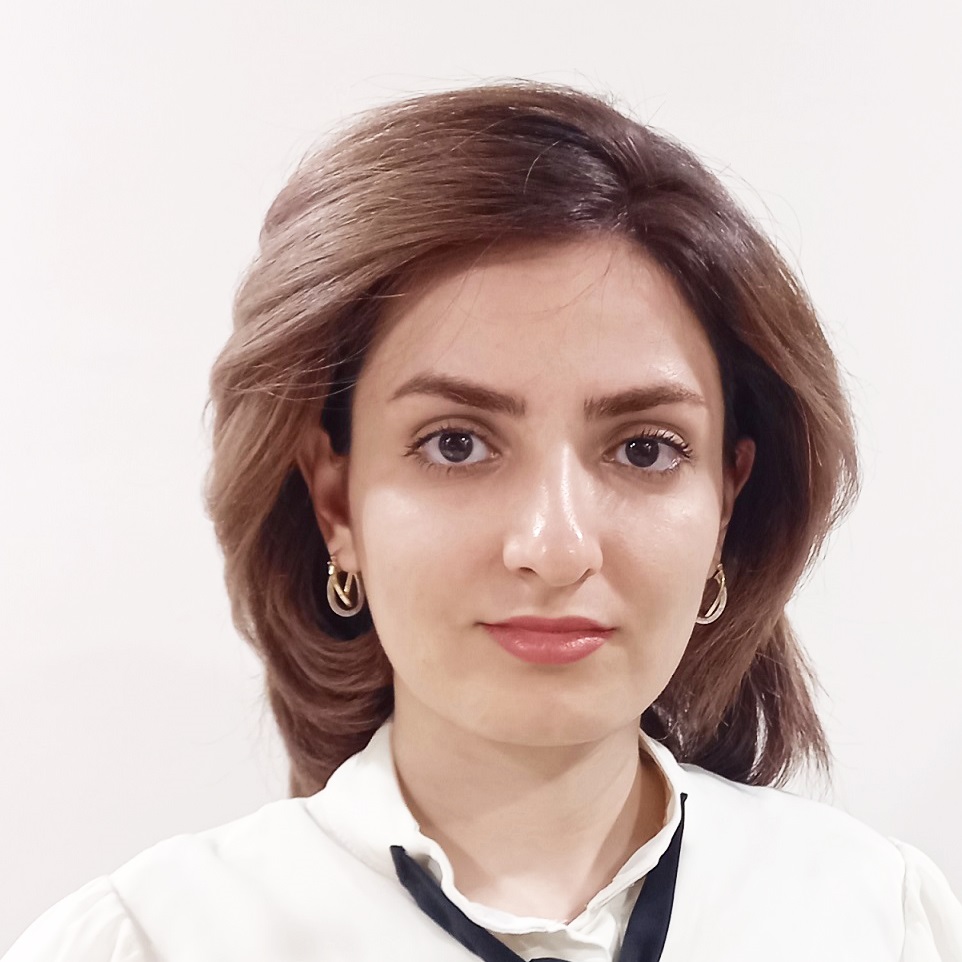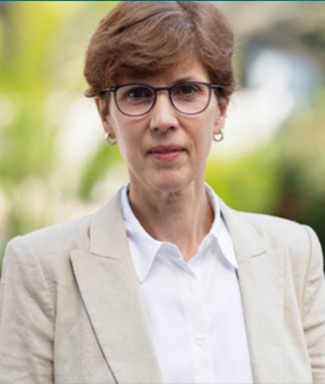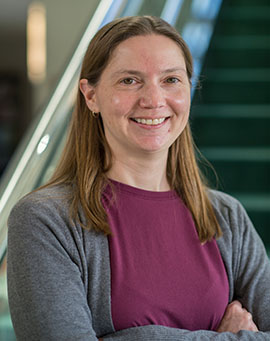MGFA Research Grant Recipients
Clinician and scientist investigators are engaged in groundbreaking myasthenia research all over the world. The MGFA funds promising research studies and clinical trials to discover potential new treatments and methods of living a better quality of life with MG. Here are some of the latest research funding grant recipients.
2023 MGFA Research Grant Recipients
High Impact Pilot Project Award
University of California, San Diego
Amount Awarded: $110,000 over 2 years
Project Funded: Purification of the acetylcholine receptor toward atomic-scale mechanisms underlying MG
Most patients with myasthenia gravis have autoimmune antibodies that attack the connections between their brain and their muscles. The most common target of these antibodies is the protein that sits on the surface of muscles and binds the neurotransmitter acetylcholine. This protein is known as the acetylcholine receptor. When acetylcholine binds the receptor, it opens a hole in the cell membrane that allows ions to permeate the cell. This movement of ions is the event that triggers muscle contraction. Antibodies binding to the receptor interferes with this process, causing progressive muscle weakness. Our ability to treat patients with myasthenia gravis is limited by our knowledge of the receptors and how antibodies attack it. Our long-term goal is to discover, for the first time, the 3-dimensional architecture of the receptor, and how antibodies from patients bind to it. The first major step in this research goal is to purify enough of the muscle acetylcholine receptor, which is the focus of this ambitious pilot proposal. Success in this project will enable success in discovering the structure of the receptor, a process that our laboratory has a strong track record in accomplishing. Having this new information will show, at the level of atomic detail, how antibodies from patients with myasthenia gravis interfere with nerve-muscle signaling. The ultimate goal is to use these discoveries to generate more specific therapies to help patients with myasthenia gravis.
University of California, Davis
Amount Awarded: $110,000 over 2 years
Project Funded: AAV-mediated gene therapy for congenital myasthenia caused by recessive synaptotagmin 2 mutations
The recessive variant of congenital myasthenia linked to the synaptotagmin 2 gene is a newly recognized disorder usually affecting children of consanguineous families. The disease manifests itself at birth with profound weakness, muscle atrophy, and respiratory failure, often requiring mechanical ventilation and gastric tube feeding. Currently available medications are not effective.
This condition results from mutations in the synaptotagmin 2 gene (SYT2), which encodes a protein that is fundamental for the calcium-regulated release of the neurotransmitter acetylcholine at the neuromuscular junction. The genetic transmission of this disorder is recessive, so parents are non-affected carriers, while the disease only expresses in 25% of their offspring. The aim of this project is to develop and obtain FDA approval for a gene therapy based on the delivery of the normal SYT2 gene through an adeno-associated virus vector. After the AAV vector is delivered to the central nervous system, the spinal motor neurons are transduced with the normal SYT2 gene and start translating a normal synaptotagmin 2 protein, which, in turn, is transported through the nerve axoplasmic flow to the neuromuscular junction. This results in the re-establishment of normal neuromuscular transmission and potential cure of the disease.
Nancy Law Impact Award
 Xin-Ming Shen, Ph.D.
Xin-Ming Shen, Ph.D.
Mayo Clinic, Rochester, Minnesota
Amount Awarded: $100,000 over 1 year
Project Funded: The 3’ untranslated region variants and therapeutic targets in congenital myasthenic syndrome genes
Congenital myasthenic syndromes (CMS) are uncommon and incapacitating conditions that disrupt the communication between muscle and nerve at the neuromuscular junction. They often result in misdiagnoses and inappropriate treatments. Globally, researchers have identified 35 genes associated with CMS, but there are more to discover. Recently, we encountered CMS patients with alterations in the specific part of the gene region across three different genes that can impact protein expression. It is believed that there may be more such changes that remain undiscovered due to the complexities of their investigation. This project seeks to delve deeper into these genetic variations in CMS patients and to explore an innovative therapy approach involving the influence of these gene regions. This research has the potential to enhance the understanding of these rare conditions and uncover new avenues for assisting those who suffer from them.
2023 Recipient Biographies
About Ryan Hibbs
Ryan Hibbs studied chemistry and biochemistry at Whitman College, a small liberal arts college in Washington, graduating in 2000. He did his PhD research at the University of California, San Diego with Palmer Taylor from 2001-2006, and his postdoctoral research with Eric Gouaux at the Vollum institute from 2007-2012. He started his independent lab in 2012 in the Departments of Neuroscience and Biophysics at University of Texas Southwestern Medical School. He was promoted to associate professor in 2019. In 2023 he moved his research lab to University of California, San Diego where he is professor and vice-chair of the Department of Neurobiology and professor of pharmacology. His research focuses on the structure of brain and muscle receptors involved in fast chemical transmission, and how signaling of these receptors is modulated by drugs and disrupted in disease. A major emphasis in the lab is understanding the fine details of how autoimmune antibodies interact with these receptors to cause pathology. Past honors include Klingenstein and McKnight Scholar awards, the UC San Diego Outstanding Alumnus Award, and the Norman Hackerman Award in Chemical Research.
About Ricardo Maselli
Ricardo Maselli obtained his medical degree at the University of Buenos Aires, where he served as an undergraduate teaching assistant in the Department of Physiology. He completed his internship at University Hospital of El Paso Texas and his neurology residency at Queen's University in Ontario, Canada. He was a clinical and research fellow in clinical neurophysiology at the University of Chicago, where he later served as an assistant professor of neurology. He is currently the director of the Clinical Neurophysiology-EMG Laboratory and a professor of neurology at the University of California, Davis. He is a translational neurologist whose main research interests are congenital myasthenic syndromes (CMS) and gene therapy for CMS.
About Xin-Ming Shen
Xin-Ming Shen, PhD, FAAN, FANA, serves as an associate professor of neurology at Mayo Clinic in Rochester, Minnesota. Dr. Shen obtained his doctoral degree from Shanghai Medical School, Fudan University, China, and completed a fellowship in the neuromuscular disease research program at Mayo Clinic. His research is focused on exploring the pathogenic mechanisms and therapeutics of neuromuscular diseases.
2022 Grant Recipients
Jackie McSpadden Post-Doctoral Fellowship Award
The MGFA Jackie McSpadden Post-Doctoral Fellowship Award was established in 2022 to support a postdoctoral investigator conducting translational research related to myasthenia gravis (MG). The fellowship grant is offered to promising recipients of MD, PhD or MD/PhD degrees when it appears that the program of training to be supported by the grant will enhance the likelihood that the trainee will perform meaningful and independent research relevant to MG in the future and obtain a suitable position that will enable them to do so. This award is named for Jackie McSpadden as a posthumous memorial to her fighting spirit in the face of her myasthenia gravis diagnosis.
 Measuring AChR autoantibody effector functions in myasthenia gravis patients ($225,000 over 3 years)
Measuring AChR autoantibody effector functions in myasthenia gravis patients ($225,000 over 3 years)
Fatemeh Khani, Ph.D.
Yale University School of Medicine
Dr. Khani’s research project is being conducted as part of her funded postdoctoral fellowship from 2023 - 2025. Her fellowship training will be conducted in in the Departments of Neurology and Immunobiology.
Research Summary: The project investigation is focused on providing the framework for the development of MG biomarkers that can directly help patients by predicting treatment efficacy and disease progression. Dr. Khani seeks to understand immune mechanisms underlying MG that are anticipated to more precisely define this heterogeneous disease. These collective studies will provide a set of well-characterized biomarkers which will serve as tools for the community to more accurately model AChR in vitro. In addition, the work will provide a framework for understanding the association between autoantibody binding properties and effector functions in MG and identify candidate biomarkers that may proactively predict response to therapeutic complement treatment and avoid severe side effects from unnecessary interventions.
In addition to gaining a deeper understanding of MG immunopathology, the work will generate forward-looking deliverables that are relevant to MG patient care in terms of prognosis and personalized/tailored therapies. This project’s proposed outcome may provide a deeper understanding of the mechanisms underlying the production of autoantibodies – a highly important determination for both the patient and clinician.
Inaugural Nancy Law Impact Award
The Nancy Law Impact Award is an MG research funding opportunity named after former MGFA Board Chair and CEO Nancy Law, who was a caring, close friend to so many people across the myasthenia community. The proposals for this grant award are focused on innovative patient outcome measurements, optimization of clinical research approaches/practices, and the application of translational biomarkers that will aid in further refining the current treatment paradigm.
 Preclinical models and biomarkers for predicting MuSK-CAART clinical outcomes ($300,000 over 3-year period)
Preclinical models and biomarkers for predicting MuSK-CAART clinical outcomes ($300,000 over 3-year period)
Aimee Payne, M.D., Ph.D.
University of Pennsylvania
Research Summary: MuSK MG is caused by MuSK autoantibodies that lead to life-threatening muscle weakness, so the ideal therapy would be to eliminate autoantibody-producing B-cells while preserving healthy B-cells. CART cells in the body are currently being re-programmed to eradicate B-cell cancers, prompting researchers to explore whether this precision medicine can be used for other diseases like myasthenia gravis. The project researchers are testing a novel autoantibody receptor T-cell therapy designed to re-program MG patient T-cells to selectively kill anti-MuSK B-cells that cause MuSK MG. The research is designed to test the working hypothesis in hopes of leading to a safe and lasting disease response and develop protocols for the detection and characterization of MuSK-CAART to validate novel biomarkers. Dr. Payne presented her ongoing work in this area during the 2022 AANEM MGFA Scientic Session in September.
MGFA High-Impact Pilot Project Award
The MGFA High-Impact Pilot Project Awards are pilot studies typically leading to new federal, pharmaceutical, or private foundation supported investigations. These grants are awarded annually.
 Advancing patient-centered care and research for ocular myasthenia gravis: Validation of a novel patient reported outcome measure ($50,000 funded over 1-year)
Advancing patient-centered care and research for ocular myasthenia gravis: Validation of a novel patient reported outcome measure ($50,000 funded over 1-year)
Lindsey De Lott, M.D.
University of Michigan
Research Summary: The ocular symptoms of Myasthenia Gravis (MG) are disabling and affect quality of life - the impact of double vision and droopy eyelids can be profound. We need to fully understand the extent of how ocular symptoms impact daily function. Patient-reported outcome measures (PROMS) are valuable tools for measuring the aspects of MG, such as double vision, that matter most to patients while enhancing patient-physician communication and support. However, there are no PROMs focused on the impact of the ocular symptoms of MG or OMG nor sufficient scales to measure OMG. Dr. De Lott aims to conduct a multicenter validation of the patient questionnaire as a standalone PROM for OMG so it can be deployed within future clinical research and support patient-centered care.
2021 MGFA Research Grant Recipients
 The use of Survivin as a Diagnostic Marker for Myasthenia Gravis (Committed $55,000 per year for 2 years)
The use of Survivin as a Diagnostic Marker for Myasthenia Gravis (Committed $55,000 per year for 2 years)
Linda Kusner, M.D.
The George Washington University
Research Summary: Nine percent of patients with myasthenia gravis (MG) cannot have a clinical diagnosis confirmed by laboratory testing for detectable antibodies, designated seronegative MG (SNMG). We have found the expression of survivin in circulating lymphocytes to correlate with the diagnosis of acetylcholine receptor antibody-positive (AChR+) MG. We have also found survivin expressed in circulating lymphocytes from patients with muscle specific kinase antibody-positive (MuSK+) and rigorously defined SNMG patients, demonstrating the potential of survivin positivity as a diagnostic marker for MG. We propose to confirm positive survivin expression in circulating lymphocytes for the context of use as a diagnostic adjunct for MG.
 Indoleamine-2, 3-dioxygenase 2 (IOD2) as a Novel Therapeutic Target for the Treatment of Myasthenia Gravis (Committed $55,000 per year for 2 years)
Indoleamine-2, 3-dioxygenase 2 (IOD2) as a Novel Therapeutic Target for the Treatment of Myasthenia Gravis (Committed $55,000 per year for 2 years)
Laura Mandik-Nayak. M.D.
Lankenau Institute for Medical Research
Research Summary: Myasthenia gravis is widely recognized as a B cell-mediated disease, with autoantibody production critical to its development and progression. While there has been intense interest in the development of therapies that deplete B cells or prevent B cell activation, these therapies are not effective in all patients and there is a continued need for new therapies. In this proposal, we will use a preclinical model of MG, together with a novel IDO2-targeting approach, to explore IDO2 inhibition as a novel therapeutic strategy to treat MG. In the short term, our studies will provide an initial step in the preclinical evaluation of IDO2 as a therapeutic target in the treatment of MG. If successful, the potential longterm impact of this project would move the concept of IDO2-directed therapy into development as a novel strategy to treat human MG.
2020:
- 2020 High Impact Pilot Project Grant Award: Kevin O’Connor, PhD, Yale University, "Identification of biomarkers that leverage mechanisms of autoantibody pathology in AChR MG" ($55,000 - One Year Award).
- 2020 High Impact Pilot Project Grant Award: Michael Hehir, M.D., University of Vermont, "Measuring adverse event burden in myasthenia gravis: Validation on adverse event unit" ($55,000 - One Year Award).
- 2020 Seronegative Grants: Jeffrey Guptill, M.D., Duke University, "Defining the clinical phenotype and immunopathology of seronegative MG" ($150,000 - 2 Year Award)
2019:
- 2019 High Impact Pilot Project Grant Award: Amanda C. Guidon, M.D., Massachusetts General Hospital, Neuromuscular Diagnostic Center, “Evaluation of automated techniques for decoding speech and movement abnormalities in myasthenia” $55,000
- 2019 High Impact Pilot Project Grant Award: Jeffrey T. Guptill, M.D., Duke University, “Metabolic Pathways of Pathogenic Th17 Cells in Myasthenia Gravis” $55,000
- 2019 High Impact Pilot Project Grant Award: Ricardo A. Maselli, M.D., University of California Davis, “CSF Delivery of AAV9-mediated gene therapy of congenital myasthenic syndrome due to CHAT mutations” $55,000
- 2020-2022 Research Contract: University of Alabama at Birmingham, "MG Patient Registry" $329,827
2018:
- 2018 High Impact Pilot Project Grant Award: Andrew Engel, M.D., Mayo Clinic, "Genetic Basis of Unsolved Congenital Myasthenic Syndromes and the Role of the AChR-CYS Loop Length in AChR Activation" $50,000
2017:
- 2017 High Impact Pilot Project Grant Award: David P. Richman, M.D., University of California, Davis, "Targeted Therapy of Myasthenia Gravis with Chimeric Autoantibody Receptor T Cells" $50,000
2016:
- 2016-2019 Clinician-Scientist Development Award: Post-doctoral fellowship to Michael Hehir, M.D., University of Vermont Medical Center, "Immunosuppressive Cost Unit: A Novel Method to Assess the Value and Cost of Immunosuppressant Side Effects" $160,000
- 2016-2018 Transformative Research Award for Myasthenia Gravis and Related Neuromuscular Junction Disorders: Jeffrey Guptill, M.D., Duke University, "Role of CD4 T cell Subsets as Drivers of MG Disease" $275,000
- 2016-2018 Research Opportunity Fund Award: Duke University, "PROMISE-MG Study meeting to expand research sites under Patient-Centered Outcomes Research Institute (PCORI) grant" $30,270
- 2016-2018 Research Contract: University of Alabama at Birmingham, "MG Patient Registry" $312,952
- 2016 Extension Research Opportunity Grant Award: Jeffrey Guptill, M.D., Duke University, "B10 Cells in MG/ Generate pilot polychromatic flow cytometry data on the role of B10 cells in a broad population of MG patients" $50,000
- 2016 Extension Research Opportunity Grant Award: Linda L. Kusner, Ph.D., George Washington University, "GWU/Anti-apoptotic Mechanisms in Persistence of Autoimmune Myasthenia Gravis" $50,000
- 2015 Continuation Research Opportunity Grant Award: Ricardo Maselli, M.D., University of California Davis, "Stem-cell treatment of congenital myasthenia associated with endplate acetylcholinesterase deficiency" $50,000
- 2015 Continuation Research Opportunity Grant Award: Ruksana Huda, Ph.D., University of Texas Medical Branch, "Novel cell specific therapy for autoimmune myasthenia" $50,000